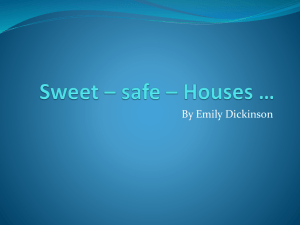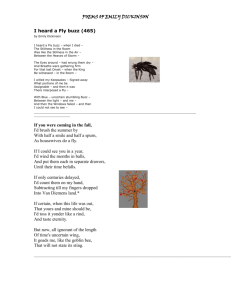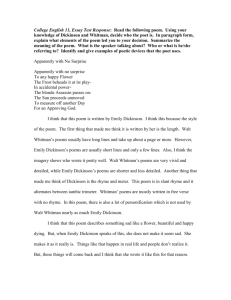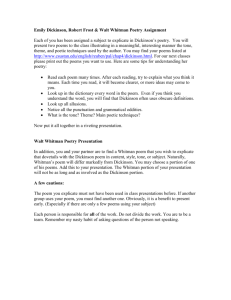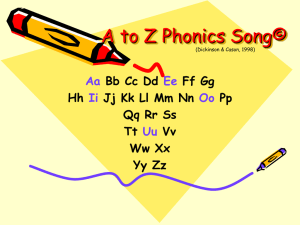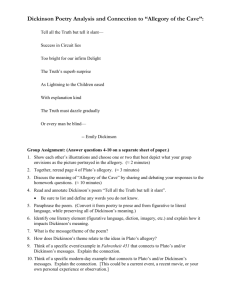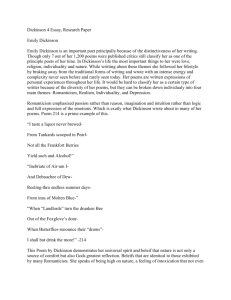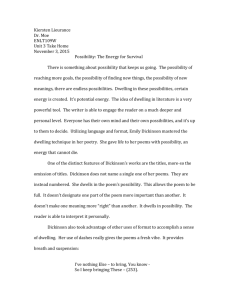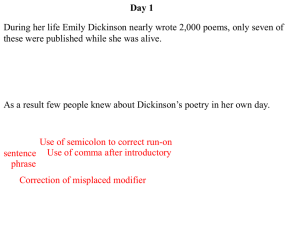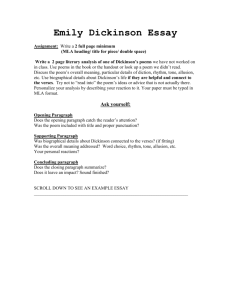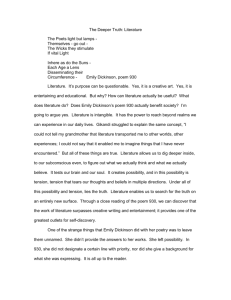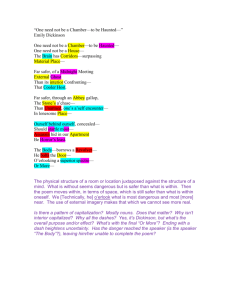In-Class Essay - Saint Mary`s Commons
advertisement
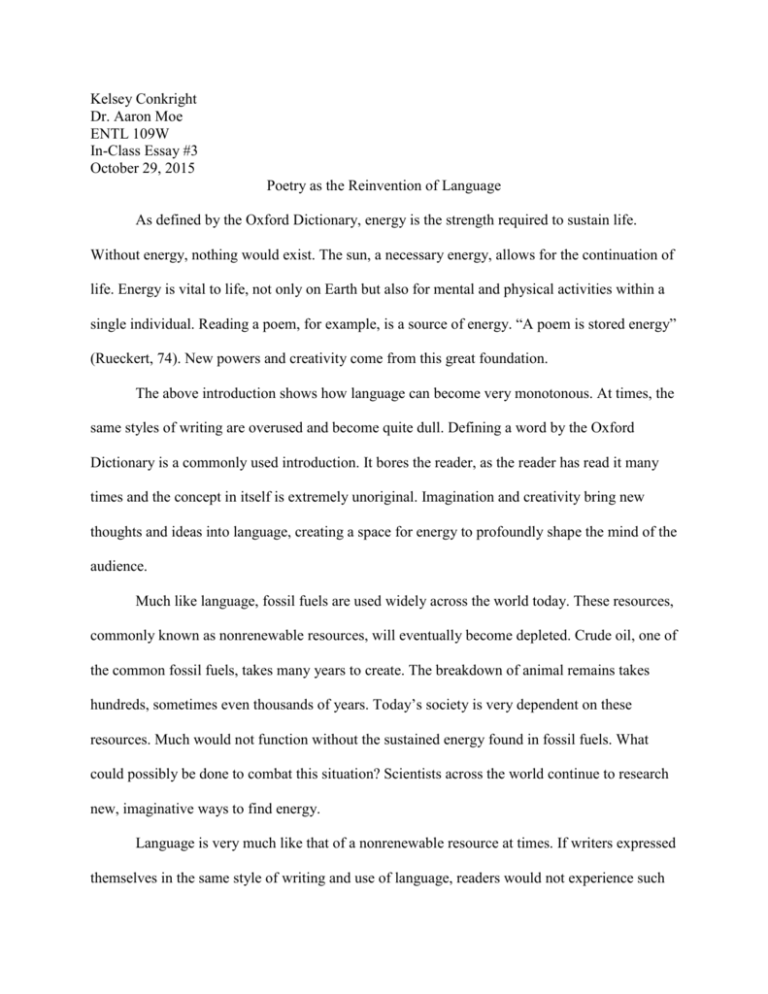
Kelsey Conkright Dr. Aaron Moe ENTL 109W In-Class Essay #3 October 29, 2015 Poetry as the Reinvention of Language As defined by the Oxford Dictionary, energy is the strength required to sustain life. Without energy, nothing would exist. The sun, a necessary energy, allows for the continuation of life. Energy is vital to life, not only on Earth but also for mental and physical activities within a single individual. Reading a poem, for example, is a source of energy. “A poem is stored energy” (Rueckert, 74). New powers and creativity come from this great foundation. The above introduction shows how language can become very monotonous. At times, the same styles of writing are overused and become quite dull. Defining a word by the Oxford Dictionary is a commonly used introduction. It bores the reader, as the reader has read it many times and the concept in itself is extremely unoriginal. Imagination and creativity bring new thoughts and ideas into language, creating a space for energy to profoundly shape the mind of the audience. Much like language, fossil fuels are used widely across the world today. These resources, commonly known as nonrenewable resources, will eventually become depleted. Crude oil, one of the common fossil fuels, takes many years to create. The breakdown of animal remains takes hundreds, sometimes even thousands of years. Today’s society is very dependent on these resources. Much would not function without the sustained energy found in fossil fuels. What could possibly be done to combat this situation? Scientists across the world continue to research new, imaginative ways to find energy. Language is very much like that of a nonrenewable resource at times. If writers expressed themselves in the same style of writing and use of language, readers would not experience such great, profound levels of energy. Language, in that case, would correlate greatly with a fossil fuel. Writing, therefore, requires a great sense of imagination and creativity to lead readers on a journey. In “Literature and Ecology: An Experiment in Ecocriticism,” Rueckert expands on the overuse of a particular theory. “If you do not get in on the very beginning of a new theory, it is all over with…” (Rueckert 72). Rethinking the ways of old theories, that is, old language is necessary to continue the power of writing. To avoid the overuse of language, writers must reconsider the old to create the new. Emily Dickinson was one poet who brought about and instituted the great power housed within a single poem. “I dwell in Possibility” (466, ln 1). The structure of her poems and the use of language is much different than other writers of her time. She expanded on the possible, unexplored territory of her day. Dickinson can be seen as a milestone in the writing of poetry. She did not follow the status quo. She invented her own use of language and brought about a profound amount of energy. This can be seen in her poem “He fumbles at your Soul.” “Then nearer - Then so - slow-” (ln 8). Dickinson interrupts the ways of iambic pentameter with the use of dashes. This creates an expansive space for the acquiring of stored energy. The reader can feel the power of the dashes. The poem seems to come to a stop, or at least slow down. “All energy comes from the creative imagination” (Ruekert, 75”. Dickinson’s creativity instituted an energy that still exists today. The power continues today, much like a renewable resource. One of the descendants of Dickinson, Hillman, immensely drew on the ideas Dickinson pursued in poetry. “The possible is boundless” (Water, 33). Following the example of Dickinson, Hillman expanded on possibility. She dwelt on the reinvention of language, to explore the opportunities found within the realms of writings. The structure and use of language found within Hillman’s poems are seen much as a new invention. Works Cited Dickinson, Emily. The Poems of Emily Dickinson. Reading Edition. Massachusetts: Harvard UP, 2005. Print. Hillman, Brenda. Practical Water. Middletown: Wesleyan UP, 2009. Print. Rueckert, William. “Literature and Ecology: An Experiment in Ecocriticism.” Iowa Review 9.1 (1978): 71-86. Print.
